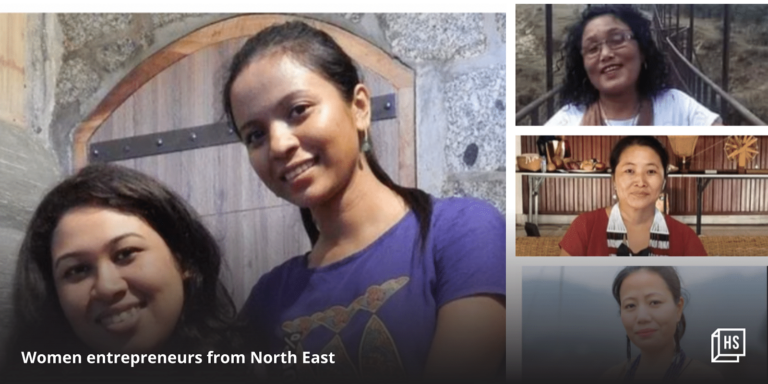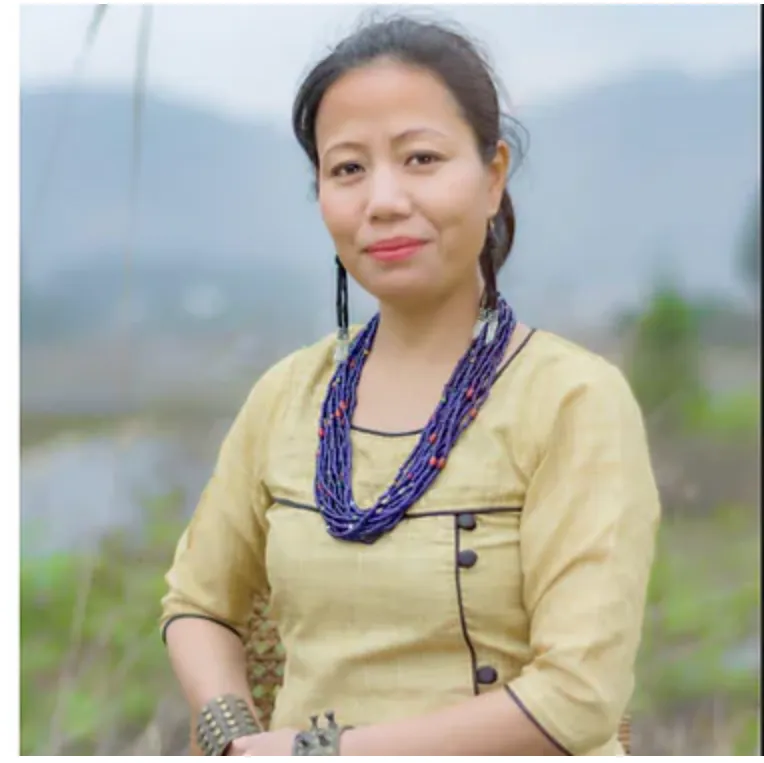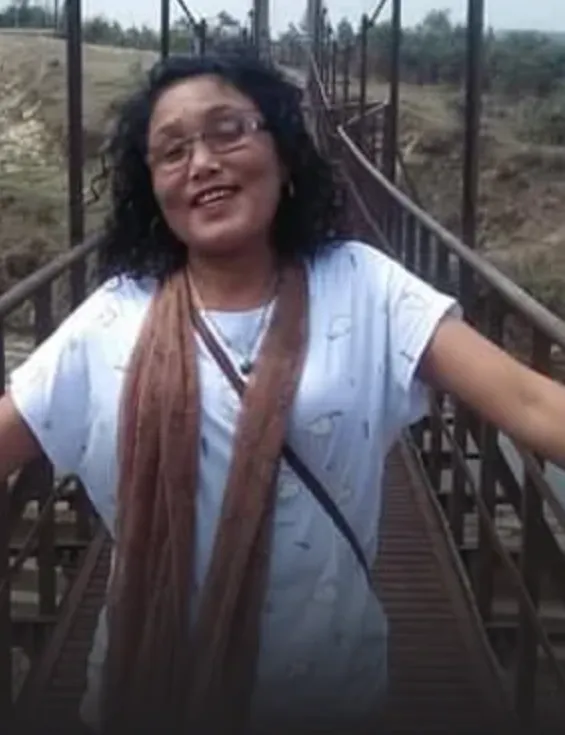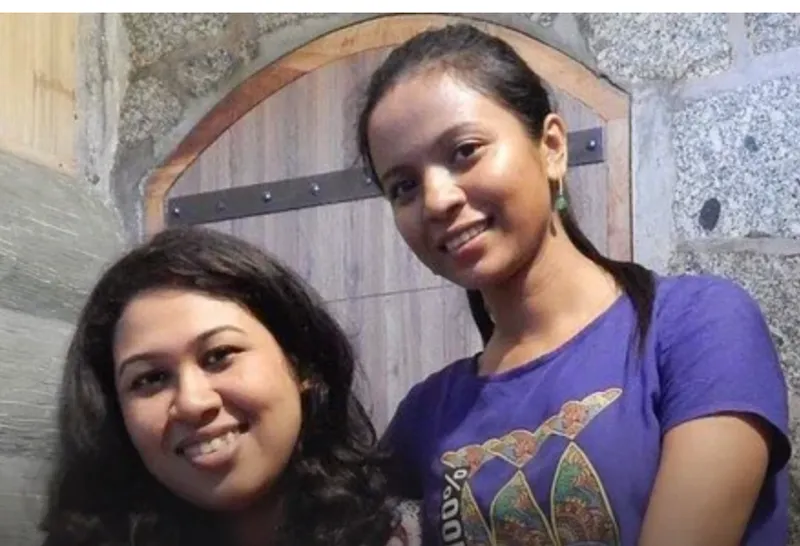
The road to entrepreneurship is paved with many challenges. Women entrepreneurs often face roadblocks in the form of access to opportunities or unconscious biases.
In the North East, women entrepreneurs face barriers when it comes to infrastructure and the supply chain due to the difficult terrain.
But despite these limiting factors, a number of them are making a mark in India, and globally, with their creative innovations and products.
We present to you four women entrepreneurs making a name for themselves and their companies with their unique ideas.
Tage Rita, Naara Aaba

Tage Rita
Growing up in the Arunachal Pradesh countryside, Tage Rita remembers a home surrounded by fruit trees, fish ponds, large vegetable gardens, the rustling of bamboo and pine trees, and the sound of chirping birds.
Her first memory of wine was at a traditional tribal festival called Myoko where she saw a shaman dressed in priestly attire taste a rice millet wine and also offer it to the deity. Once she was convinced that wine from kiwi fruit was a feasible idea, Rita spent close to six years on R&D to start a winery.
In 2016, she launched Naara Aaba, a range of wines made from kiwi fruit in Arunachal Pradesh’s Ziro Valley.
A few years ago, she also started making wine from plums, pears and peaches.
Rita says while demand for the product is consistent, the erratic distribution network is a major challenge.
This March, Rita received the Nari Shakti Puraskar for excellence in promoting women’s entrepreneurship by President Ram Nath Kovind.
Iaishah Rymbai, EriWeave

Hailing from a weaver family, Iaishah Rymbai learnt the art of Eri silk weaving from her mother Prissila Rymbai.
A school teacher, Rymbai in 2016 received an order to make 50 Eri silk scarves. To fulfil the order, she would need the help of villagers, especially women. She went from house to house to encourage women to learn the art of weaving Eri silk, since the raw material for the yarn was widely available in the area.
Though she was met with scepticism at first, she was able to enrol a group of women, who then underwent training in spinning and weaving Eri silk.
Eri silk differs from other silk because it’s vegan and non-violent; it’s also known as Ahimsa silk as it’s processed without killing the silkworm. The EriWeave products, comprising scarves, stoles, and fabric, are sold via online channels, including Facebook and Instagram. They are also available on the company’s website.
Vekuvolu Dozo, Viko Ethnic
From a tiny hamlet in Naga United Village in Dimapur, Nagaland, Vekuvolu Dozo runs her ethnic weaving brand, Viko Ethnic, which makes home accessories like table linen, apparel, and more. It now has a range of collections with a customer base from across India.
The enterprise has onboarded several women from the village, many of them widows, and given them the opportunity to earn a livelihood using a skill they are familiar with.
Veku’s handloom products are available on her Instagram handle, which is under her name, and on WhatsApp. The products include handbags, pouches, table linen, pure cotton mekhelas (wrap-arounds), and more. Veku’s products have even travelled as far as Paris through exhibitions.
Paulmie Gogoi and Dr Tanushree Devi, Woven Tales of North East

Paulmie Gogoi and Dr Tanushree Devi have used the water hyacinth—a weed that grows abundantly in the waters of the North East—to make sustainable and eco-friendly products.
The Woven Tales of North East, is a brand that works with two women-dominated artisan clusters in Nagaon, a town 120 km away from Guwahati. Each cluster has around 60 women artists trained in working with water hyacinths. The raw material is collected, and only the stem is dried and used.
Apart from the usual baskets, Woven Tales of North East also offers handbooks and notebooks where the paper is recycled and the covers are crafted from water hyacinth. Other products include gift boxes and tissue boxes.
Only the stem is used presently, but entrepreneurs are experimenting with the leaf and root to make different products.